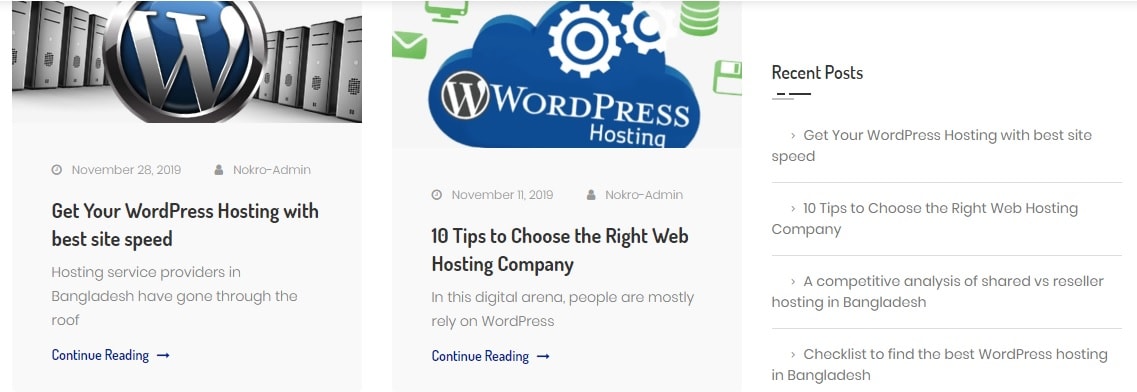According to its Facebook page, Bangladesh-based Nokro was established in 2016 to offer shared web hosting, WordPress hosting, developer hosting, and domain services. Although Nokro’s English-language website also alludes to WordPress development, I couldn’t find any additional information about this.
Features and Ease of Use
Nokro offers 21 Plesk-administered shared web hosting plans, four WordPress hosting plans (plus one more in the cart), and three developer web hosting plans. The WordPress plans are essentially the same as the shared web hosting plans, albeit optimized for WordPress.
Nokro’s Plesk shared web hosting plans provide you with:
- CloudLinux OS
- Plesk control panel
- 500 MB to 20 GB storage space
- 10 GB to 100 GB monthly bandwidth
- Up to 10 addon domains
- 50 to 100 subdomains and FTP accounts
- 20 to 100 databases
You can upgrade or downgrade at any time by paying the price difference (if applicable).
The CloudLinux operating system keeps your website isolated from the adverse effects of other hosted users. Daily backups keep your data safe in case of server failure, but these are strictly for Nokro’s own use, so you can’t use them for your own rollbacks to earlier website versions.
Under the covers, pure SSD storage in RAID 10 configuration assures peak performance and maximum reliability. Although Nokro claims that all hosting packages ensure 99.9% uptime, its SLA will credit your account with a month’s worth of hosting if uptime falls below 98% (and of you claim within seven days).
Pricing and Support
Nokro offers budget-friendly shared hosting plans. You have the option to make annual payments for these plans in either U.S. dollars or Bangladeshi taka using bank transfer or online payment. If you find the services unsatisfactory, the 30-day money-back guarantee enables you to cancel within the first month.
The good news is that you should be able to contact this company’s 24/7 customer support team by telephone, ticket, email, or pre-sales contact form. The bad news is that my exploratory email bounced back (with “address not found”) and my test support ticket went unanswered.
With no knowledge base, self-support resources seem to be limited to a recently updated blog:











